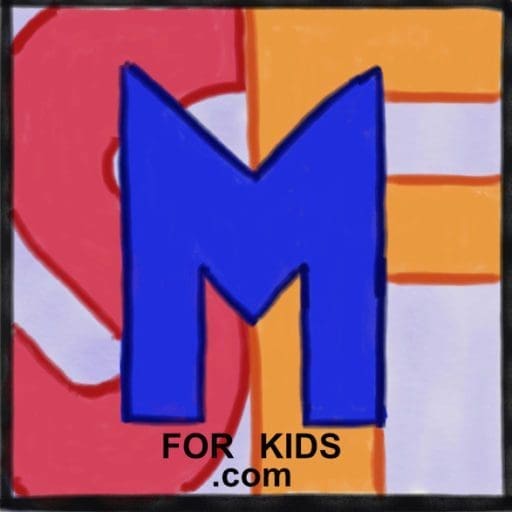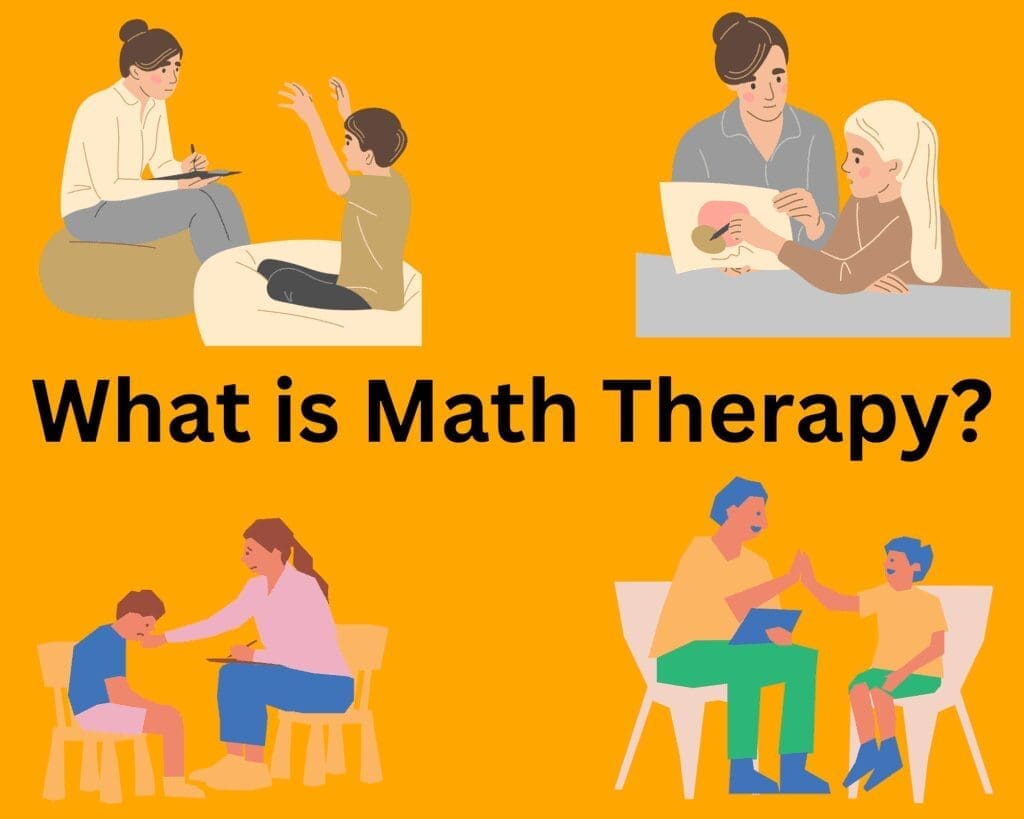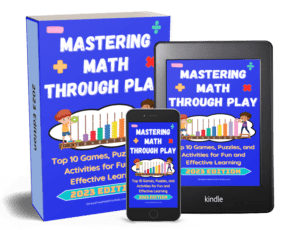What is math therapy? I first heard the term from Kirk of Kirk’s Tutoring. Kirk began his multisensory math tutoring business after leaving the classroom to homeschool his sons. We started talking on Instagram one day after realizing we had very similar teaching styles. We both work with many students who have extreme math anxiety or bad experiences with math. Kirk offers online tutoring based on Mortensen Math, which is explained on Anna’s Math Page. Basically in Mortensen, students learn to discover math processes and visualize math concepts using tactile math blocks.
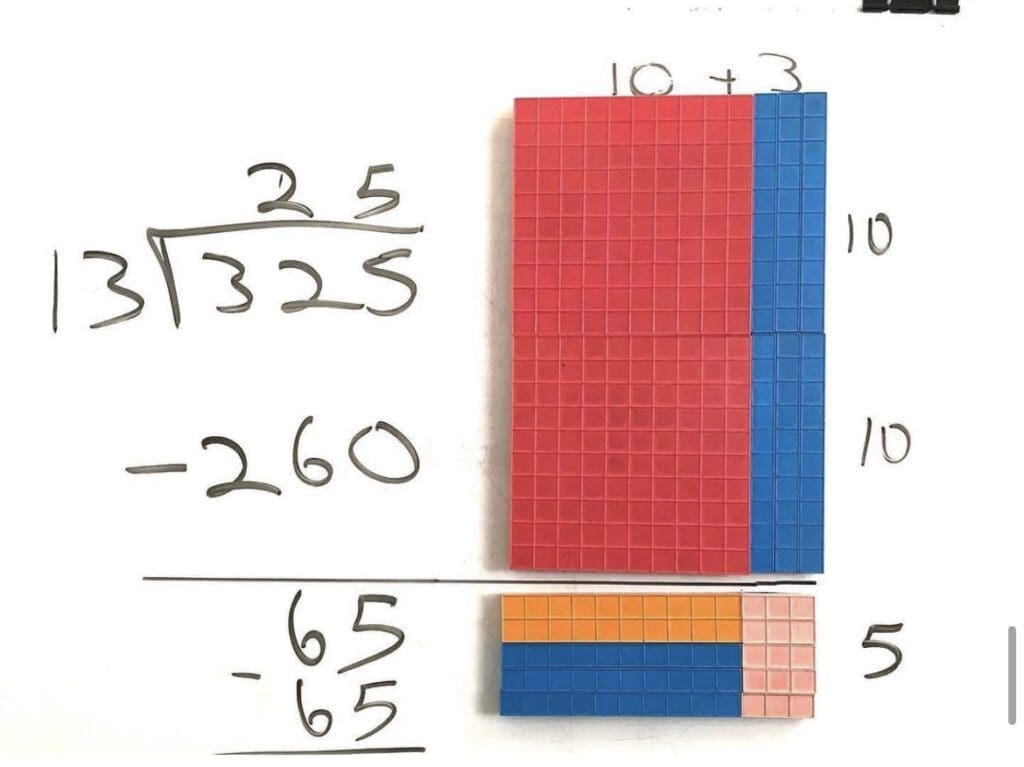
I had never heard of Mortensen before talking to Kirk, but I did have a set of very similar Math U See integer blocks that I used with all of my students.
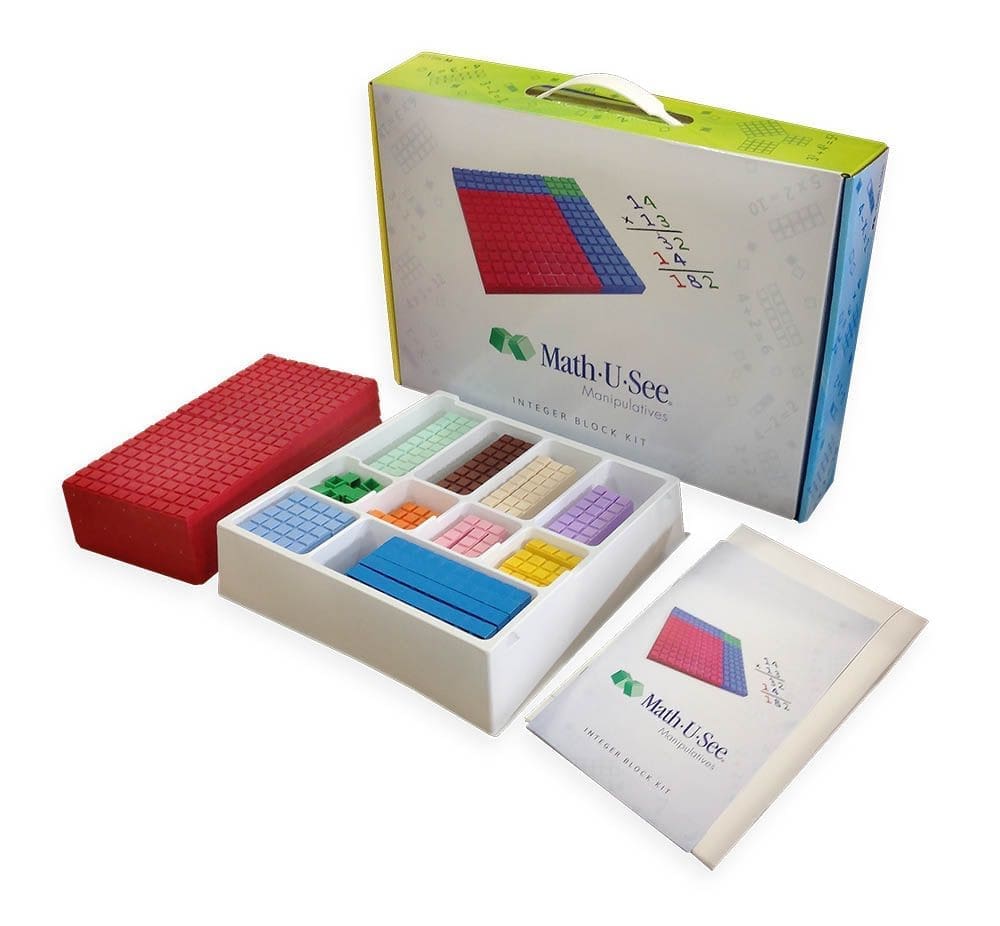
I have used the Math U See curriculum, and it’s not my favorite for most students (see my post on homeschool curriculums here), but their blocks are an incredible tool. Before getting them my favorite manipulative was Cuisenaire Rods, which are based on the same concept.
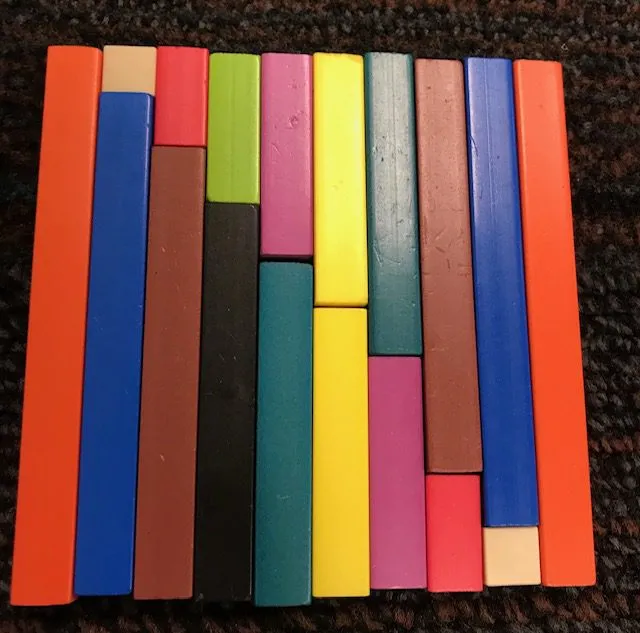
Cuisenaire Rods
I do the same thing with both, but I like that Math U See includes hundreds flats, and the students prefer the integer blocks because they can build with them!
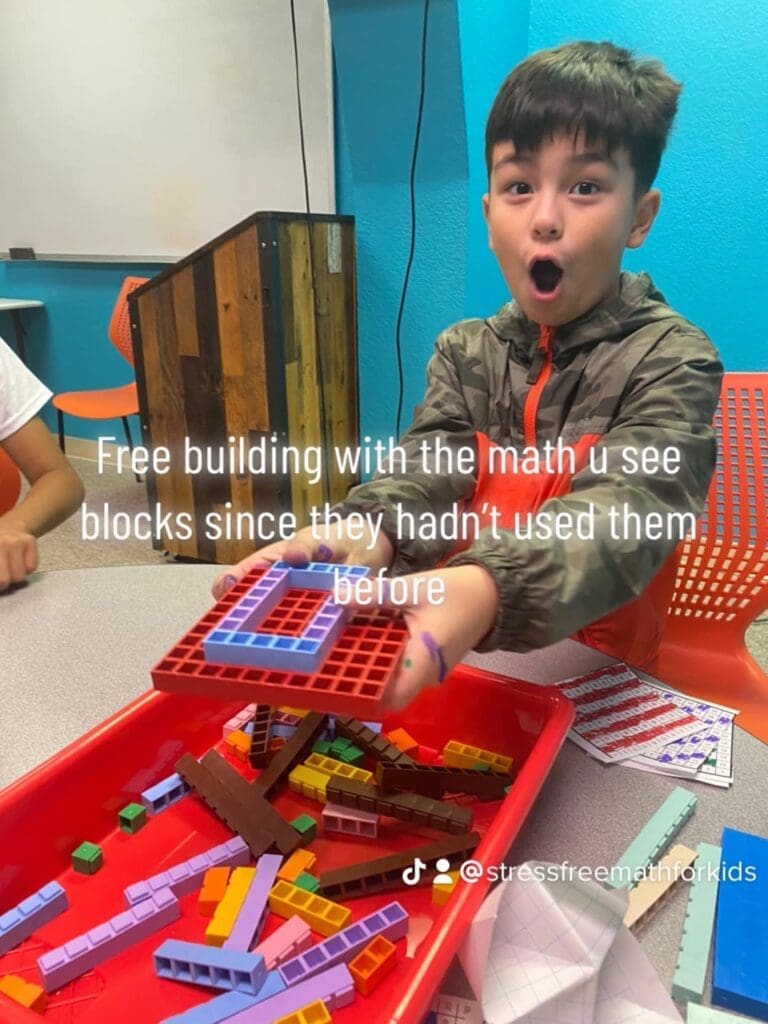
In my post Why Do Kids Hate Math? I say that no kids actually hate math, but they hate the way it has been presented to them at school, and the frustration that they associate with math. Discovery and play based math takes away that frustration. It creates a positive environment for math, and it gives kids positive experiences. Kids build their confidence, and they change their mindset as they become successful. That is why we call what we do math therapy!
Anna, whose page I linked earlier, has a post called Math Anxiety-Math Therapy where she explains this in more detail.
Kirk himself wrote this,
“(Math therapy) involves talking about the neuroscience of learning, multiple intelligences theory, neuroplasticity, and the dangers of comparing yourself to others. Comparison culture is fueled by social media and incredibly damaging to young people. These conversations help students to understand that they are not unique in their challenges and feelings. They also set the stage for developing a growth mindset, which is key to overcoming negative math experiences and empowering students. These conversations are combined with multisensory math. Multisensory math provides opportunities for students to experience math successes.”
kirkstutoring.com
He goes on to discuss the importance of spending a lot of time discussing math concepts with students to improve their conceptual understanding. He also says that he teaches students to draw math problems, one of my own favorite strategies. An adult who had struggled with math as a child once told me her whole experience was changed by the expression “if in doubt, draw it out.” It has become one of my own most frequent sayings!
Finally, there is The Math Guru, a Canadian math tutor who has a podcast called Math Therapy. As her site says,
“Math Therapy explores the root causes of math trauma, and the empowering ways we can heal from it. Each week host Vanessa Vakharia, aka The Math Guru, dives into what we get right and wrong about math education, and chats with some of today’s most inspiring and visionary minds working to make math more accessible, diverse, and fun for students of all ages. Whether you think you’re a “math person” or not, you’re about to find out that math people don’t actually exist – but the scars that math class left on many of us, definitely do.
maththerapypodcast.com
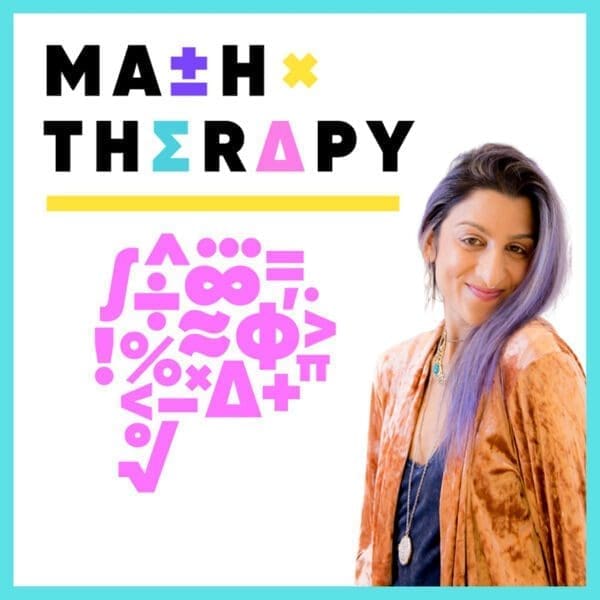
As with any therapy, there are many forms. My tutoring and teaching doesn’t look exactly the same as Kirk’s, Anna’s or the Math Guru (especially as they all tutor higher levels than I typically do.) While I use math blocks, conversations and drawings often, my main teaching method is games. I also use art, music, puzzles, and many other resources. However, we all who call ourselves math therapists have the same goal: help all children be successful at math and even learn to love it. Math should be playful, joyful, and fun, and we are on a mission to make it so!
